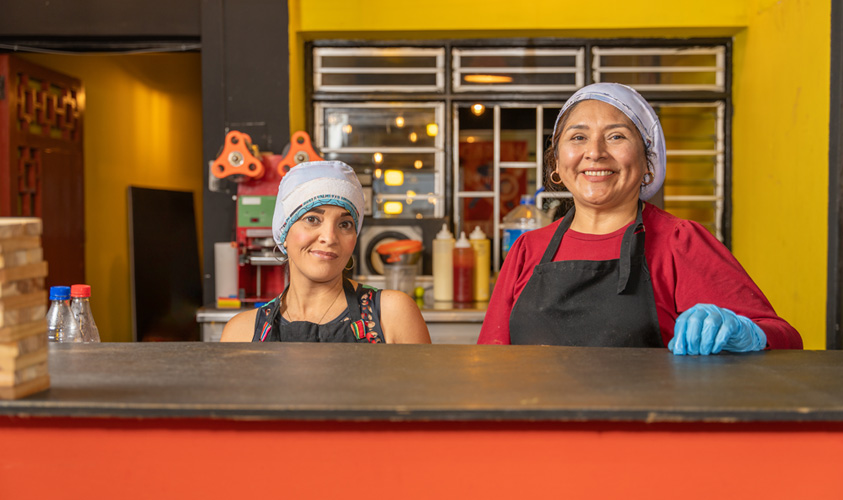Working: 8.00am - 5.00pm

Franchising vs Licensing: Which one is better
Franchising and licensing are both ways to expand a business, but they differ in terms of structure, control, and financial arrangements. Here's a comparison:
Franchising:
Structure: A franchisee buys the rights to operate a business using the franchisor's brand, systems, and processes.
Control: The franchisor maintains significant control over the franchisee, including operations, marketing, training, and product standards.
Consistency: The business model and brand presentation remain consistent across all franchises.
Support: Franchisors typically provide ongoing support, such as training, marketing assistance, and operational guidance.
Fees: Franchisees usually pay an initial franchise fee and ongoing royalties, often a percentage of revenue.
“In Malaysia, the government has implemented many programs and activities in order to cultivate more franchisors and franchisees to be involved in the franchise business. ”
Dr Khairol Anuar Ishak
Author
Key Aspects of Franchising in Malaysia:
1. Government Support and Regulation
Franchise Act 1998: Malaysia has a well-regulated franchise industry under the Franchise Act 1998, ensuring fair practices between franchisors and franchisees. The law mandates that franchises must be registered with the Ministry of Domestic Trade and Consumer Affairs (MDTCA), providing transparency and legal protection for both parties.
Support Programs: The Malaysian government, through agencies like Perbadanan Nasional Berhad (PNS) and the Malaysian Franchise Association (MFA), provides various incentives, funding, and programs to support franchise development. These initiatives make it easier for businesses to adopt the franchise model and for aspiring entrepreneurs to invest in franchise opportunities.
2. Booming Local Market
Diverse Consumer Base: Malaysia's growing population, particularly the middle class, has created strong demand for goods and services, making it an ideal market for both homegrown and international franchises. The rising disposable income and consumer preference for branded experiences offer excellent potential for franchisors to expand their footprint.
Local Franchise Success: Malaysia has produced successful local franchises such as OldTown White Coffee, Secret Recipe, and Marrybrown, which have expanded both domestically and internationally. This demonstrates the viability of building strong franchise systems locally.
3. Strategic Location in Southeast Asia
Gateway to ASEAN: Malaysia's strategic location in Southeast Asia makes it an ideal base for franchisors looking to expand into other ASEAN countries. With access to a market of over 600 million people, franchising in Malaysia can serve as a launchpad for regional growth.
International Franchises in Malaysia: The Malaysian market is also highly receptive to international franchises, with brands like McDonald's, KFC, and 7-Eleven thriving in the country. This trend highlights the openness of Malaysian consumers to diverse global franchise offerings.
4. Franchising as a Business Growth Model
Low-Risk Expansion: For local businesses, franchising offers an attractive model to expand with lower financial risk and operational complexity. It enables businesses to leverage franchisees’ investments and local knowledge while maintaining brand control and consistency.
Entrepreneurship Opportunities: For aspiring entrepreneurs, franchising provides a structured, proven business model. With access to established brands, training, and operational support, franchisees can start their business with a higher chance of success than independent ventures.
5. Cultural and Market Adaptation
Customizing for Local Preferences: Franchisors in Malaysia need to be mindful of cultural preferences, particularly in areas such as halal certification, which is essential in the predominantly Muslim market. Businesses that adapt to these local norms and values can create a stronger brand presence and attract a wider customer base.
Local Innovation: Malaysian franchises often integrate local flavors and business practices into their models, giving them an edge in connecting with local customers. For example, local fast-food chains incorporate popular Malaysian dishes to appeal to domestic tastes.
6. Challenges in Franchising
Market Saturation: While franchising offers growth opportunities, certain sectors like F&B may face increasing competition. Franchisors need to innovate and differentiate their offerings to stay competitive.
Franchisee Education and Training: Ensuring that franchisees have the skills and knowledge to operate successfully is crucial. Franchise systems that emphasize strong training programs and ongoing support tend to perform better in the Malaysian market.


Franchise Vs. Licensing
Licensing:
Structure: A licensee obtains the rights to use intellectual property (like a brand, logo, or technology) for a specific purpose or product line.
Control: Licensees generally have more operational freedom than franchisees. They are responsible for how they run their business, with fewer restrictions from the licensor.
Flexibility: There’s greater flexibility in how the licensed brand or intellectual property is integrated into the licensee's business.
Support: Less ongoing support from the licensor compared to franchising. The relationship is more transactional.
Fees: Licensees typically pay a licensing fee, which may be a one-time payment or royalty based on sales.

franchisee buys the rights to operate a business
The franchisor maintains significant control over the franchisee
The business model and brand presentation remain consistent
Franchisors typically provide ongoing support.
Franchisees usually pay an initial franchise fee and ongoing royalties.
Key Differences:
Business Model: Franchising is a complete business model replication, while licensing typically involves the use of a specific asset (like a brand or technology).
Control: Franchisors exert more control over franchisees, while licensors have less control over licensees.
Support: Franchises come with a structured support system, while licensing agreements typically do not include this level of involvement.
Franchising is ideal for those looking to replicate a proven business model, while licensing offers more freedom but with less support and brand consistency.

